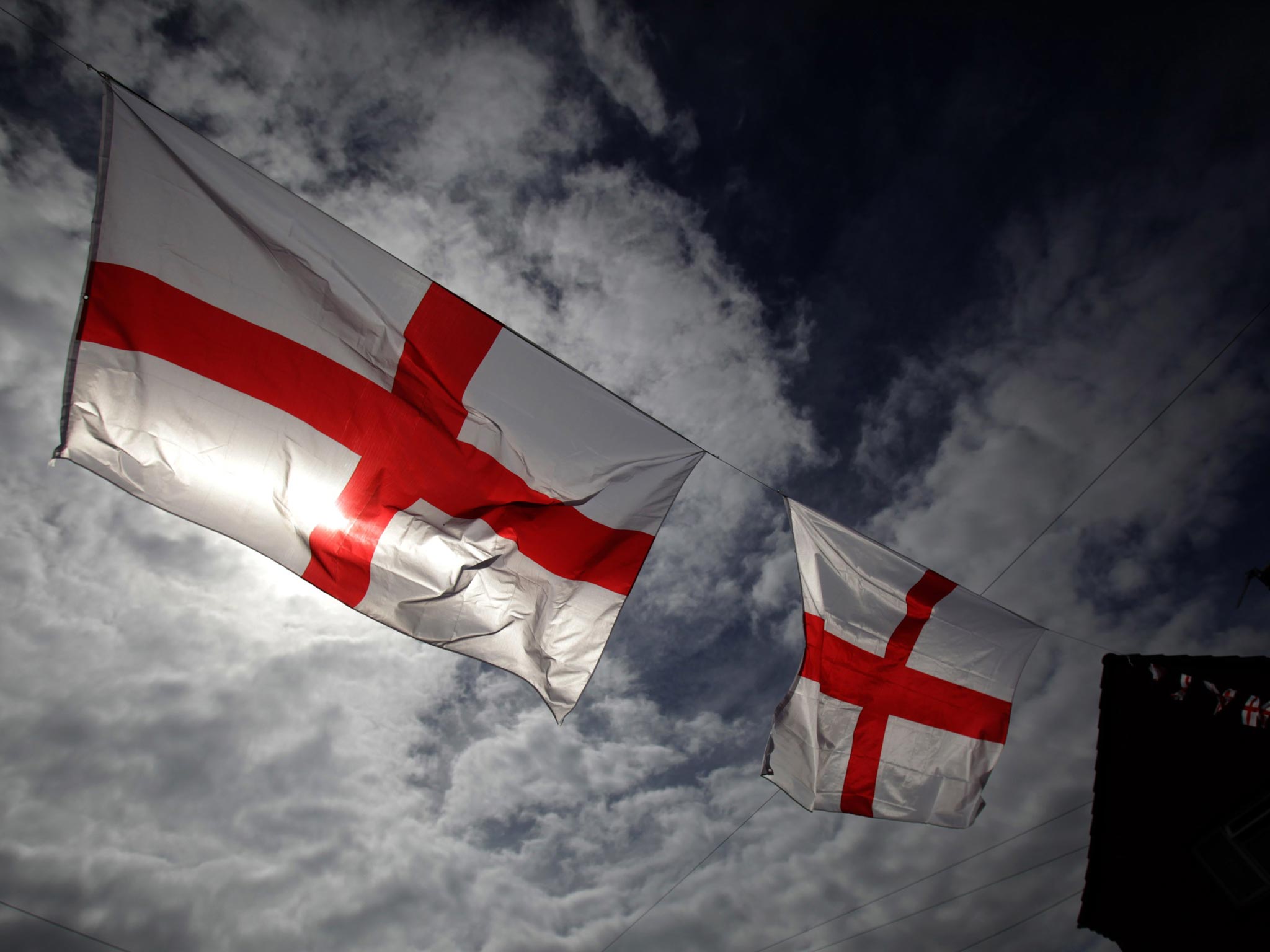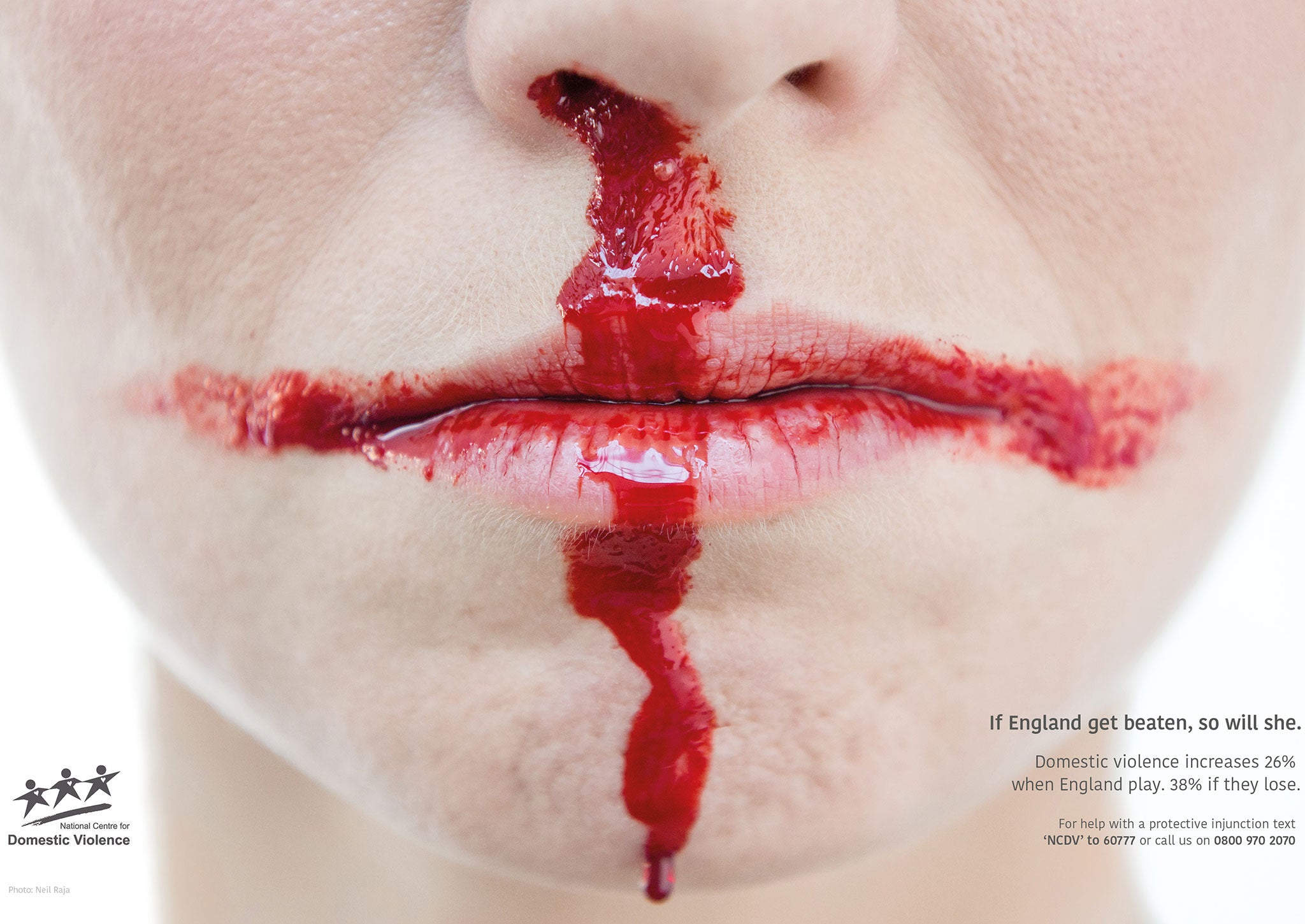Domestic abuse reports soared during the World Cup, police figures show
Incidents peaked on night England lost semi-final against Croatia, data shows

The World Cup saw reports of domestic abuse rocket across England and Wales, figures show.
More than three-quarters of more than 300 incidents took place during England games, peaking when the team was knocked out by Croatia in a tight semi-final.
The second highest number of domestic abuse reports came during England’s match against Sweden, followed by Colombia, Panama and Tunisia.
Previous research has found an increase in incidents following matches, with a study of previous World Cups showing that domestic violence rose by 38 per cent when the England team lost a game and by 26 per cent when they won or drew.
Incidents were 11 per cent higher the day after England played, whatever the outcome, and peaked at a weekend or when the team exited the tournament.
Members of the Football United Against Domestic Violence campaign say driving factors include increased alcohol consumption and tension.
Katie Ghose, the chief executive of Women’s Aid, said in a warning issued ahead of the World Cup: “Categorically, football does not cause domestic abuse, the behaviour and actions of abusers who exert power and control over their victims cause domestic abuse.
“However, domestic abuse does not happen in a cultural vacuum. The sexist attitudes, chants and behaviour at football matches encourage an environment in which women are belittled and demeaned.”

The 2018 World Cup also saw a dramatic increase in disorder, as England fans flooded the streets and were filmed jumping on ambulances and other vehicles.
Of almost 1,500 crimes linked to fixtures, 90 per cent were reported in relation to England’s seven games.
“While supporter numbers were relatively low in Russia, incidents of disorder linked to the tournament in the UK were higher than has been seen in other recent international tournament,” said Deputy Chief Constable Mark Roberts, the National Police Chiefs’ Council lead for football policing.
“Many incidents involved groups of people fighting, violent behaviour, smoke bombs and flares being lighted.”
Crimes peaked around England’s quarter-final victory against Sweden, which fell on a Saturday and saw boozy celebrations spill over into disorder and vandalism.
Major roads were blocked in London, Birmingham and other cities, while fans were pictured jumping on emergency service vehicles, buses, cars and bus stops and people ans stormed a branch of Ikea.
The second highest number of crimes came on the day of the Croatia match, when a man punched a police horse and attacked officers after getting into a fight at a bar in Weston-super-Mare.
The majority of 337 arrests linked to the World Cup were for public order offences, while there was one rape recorded.
There were also 43 hate crime incidents across UK, including on trains and in rural areas.
The period exerted extra pressure on stretched British police forces amid a rise in violent crime, a second novichok incident in Wiltshire, and Donald Trump’s impending UK visit.
Assistant Chief Constable Chris Shead, of the National Police Coordination Centre, said 999 calls “spiked significantly” after the Sweden match and remained high in the following days.
“Don’t let the football be an excuse for disorder or obstructing the emergency services,” he urged in July.
Police officer numbers have decreased by some 20,000 since 2010 amid budget cuts, sparking criticism from the senior ranks linking declining resources to a rise in violent crime.
Bookmark popover
Removed from bookmarks